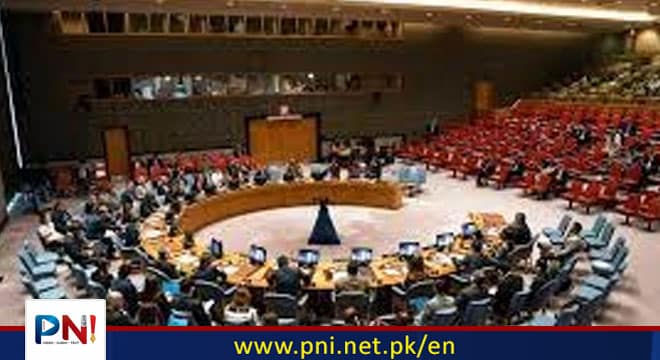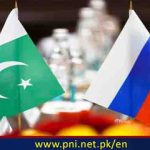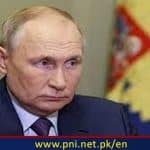ISLAMABAD July 22 (Online): Russia has come under pressure at the United Nations Security Council from its ally China and developing countries as well as Western nations to avert a global food crisis and quickly revive Ukrainian grain shipments.
Moscow was also criticised by the UN and council members on Friday for attacking Ukrainian ports after pulling out of the year-old grain deal and destroying port infrastructure — a violation of international humanitarian law banning attacks on civilian infrastructure.
Russia said it suspended the Black Sea Grain Initiative because the UN had failed to overcome obstacles to shipping its food and fertilizer to global markets, the other half of the Ukraine grain deal.
The Kremlin said it would consider resuming Ukrainian shipments if progress is made in overcoming the obstacles, including in banking arrangements.
China’s deputy UN ambassador Geng Shuang noted UN Secretary-General Antonio Guterres’ commitment to make every effort to ensure that both Ukrainian grain and Russian food and fertilizer get to world markets.
He expressed hope that Russia and the UN will work together to resume exports from both countries “at an early date” in the interest of “maintaining international food security and alleviating the food crisis in developing countries in particular.”
Several developing countries warned of the impact of the cutoff in Ukrainian grain shipments, which has already led to a rise in wheat prices.
Gabon’s UN Ambassador Michel Biang said the grain deal had avoided a spark in grain prices and calmed the risk of food insecurity in the drought-affected Horn of Africa and other regions. He urged talks “to break the current deadlock” and avoid a humanitarian crisis.
Mozambique’s UN Ambassador Pedro Afonso said Russia’s action is certain “to amplify global socio-economic stresses in a world already grappling with a perfect storm of conflict, climate change” and a loss of confidence in multilateral solutions.
Russia’s deputy UN ambassador Dmitry Polyansky said Russia stands ready to consider rejoining the deal if seven principles from the Russia-UN memorandum are implemented.
He listed them as “the real not theoretical” lifting of Western sanctions on Russian grain and fertilizer exports, and the lifting of obstacles to Russian banks that service exports, including the immediate connection to the SWIFT global banking system.
Russia also wants the delivery of spare parts for agricultural production to resume, a resolution to issues related to chartering vessels for Russian exports including insurance, the war-damaged ammonia pipeline from Russia to Ukraine to be fixed and other fertilizer issues resolved, Russian assets linked to agricultural production unfrozen and “the resumption of the initial humanitarian nature of the grain deal,” he said.
Turkish President Recep Tayyip Erdogan said Thursday that Türkiye, which helped broker the Black Sea grain deal with the UN, will use all its diplomatic tools to make sure the deal resumes.
“A consensus has been reached that serves humanity in a war environment, and we will do our best to keep it going,” Erdogan said.
The Turkish president added that he might soon have a phone call with Putin without waiting for an expected upcoming meeting in August.
Under the deal, Ukraine was given a green light to ship grain from three Black Sea ports, but following Monday’s withdrawal, Russia said it will consider a ship travelling to Ukrainian ports as being laden with weapons and will treat the country of its flag as a participant in the conflict on Kiev’s side.
Ukraine announced that it will also treat ships travelling to Russian Black Sea ports as military targets.
Follow the PNI Facebook page for the latest news and updates.








